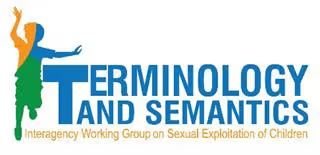A global Interagency Working Group released the ‘Terminology Guidelines for the Protection of Children from Sexual Exploitation and Sexual Abuse’ in Geneva today, taking an important step in strengthening collaboration to address sexual exploitation and sexual abuse of children. The ‘Luxembourg Guidelines’ were developed under the guidance of a global Interagency Working Group, composed of 18 members, including ECPAT, INTERPOL, UNICEF and the UN Special Representative of the Secretary General on Violence against Children.
The Dutch National Rapporteur on Trafficking in Human Beings and Sexual Violence against Children, Corinne Dettmeijer, underlines the importance of the use of correct and well-considered terminology. ‘Children who have experienced sexual abuse suffer enormously. You do not want to harm them even more. However, this does – unintentionally – happen, even by professionals. In a recent report of mine, I looked into the criminal cases against suspects who paid for sex with children of 16 and 17 years old. The victims in these cases are commonly referred to as ‘prostitutes’ – in the media as well as by the judges in the verdicts. This term repudiates the victimisation of these children: as if the child itself is responsible for the experienced sexual abuse. It’s not difficult to imagine how painful this is for these victims.’ This is in line with the Guidelines that advise against the use of the term ‘child prostitute’ for the same reason.
In respect of terms that do not cause harm, and therefore cán be used, the Guidelines indicate the precise meaning in the appropriate context. After all, the terms regarding the different forms of sexual exploitation and sexual abuse of children are not univocal. Child sexual exploitation and sexual abuse are complex phenomena involving multiple actors, and requiring a multi-sectoral response. The absence of common language to describe conduct amounting to sexual exploitation and sexual abuse affects and undermines global efforts to protect children. ‘Even where the same terms are used, there is often disagreement concerning their actual meaning, resulting in confusion and challenges for law-makers, child protection agencies, media and civil society groups’ explained Dorothy Rozga, Executive Director of ECPAT International. In the context of transnational child sexual abuse and sexual exploitation, these difficulties are magnified.
‘Sometimes the use of incorrect terms frustrates the fight against sexual abuse.’ Corinne Dettmeijer refers to the use of the term ‘paedophile’ to denote people who abuse children. ‘This is one of the most widespread misconceptions. But most offenders are no paedophiles, since they do not have a stable sexual preference for children (see my report 'On solid ground', paragraph 2.5.5). And just as important: not all paedophiles actually abuse children. Many paedophiles oppose their sexual orientation and do not act upon their sexual desires. Although they are obliged to do so by law, this is not easy. In order to prevent a paedophile from becoming an offender, he or she should receive all the necessary help. However, the taboo about the term ‘paedophile’ makes it difficult for them to disclose, with all that that entails. Fortunately, in the Netherlands, paedophiles in need of assistance can now contact the anonymous helpline 'Stop it Now!'.

The Dutch National Rapporteur supports the Luxembourg Guidelines and is convinced that they contribute to a more effective protection of children, on the national as well as the international level.